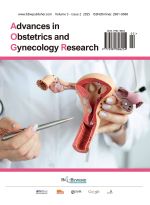Abstract
Objective: Research suggests a link between maternal periodontitis and pregnancy-induced hypertension (PIH). As an immunoglobulin G (IgG) receptor, FcγRIIB delivers inhibitory signals to B lymphocytes. Previous studies have demonstrated that FcγRIIB-232I/T polymorphism is associated with periodontitis, and the link between 232T allele carriers and periodontitis may stem from their reduced IgG antibody responses to P. gingivalis. The role of FcγRIIB-232I/T polymorphism in predisposing Chinese pregnant women to periodontitis and PIH was explored in this investigation. Methods: Clinical periodontal parameters and obstetric records were retrospectively analyzed in 87 Chinese pregnant women. FcγRIIB-232I/T genotyping was performed using genomic DNA isolated from peripheral blood samples from each participant. The expression levels of FcγRIIb on peripheral B lymphocytes from 10 women were measured by flow cytometry. Results: The FcγRIIB-232T allele was associated with elevated third-trimester blood pressure, with compounded effects observed in carriers concurrently affected by periodontitis. Periodontitis and PIH exhibited a shared genetic predisposition through the FcγRIIB-232I/T polymorphic locus. Among individuals carrying the FcγRIIB-232T allele, periodontitis was significantly associated with PIH. Conclusion: FcγRIIB-232T allele carriers of Chinese pregnancy women are more susceptible to periodontitis and PIH,and those with periodontitis are more susceptible to PIH.
References
Muta T, Kurosaki T, Misulovin Z, et al., 1994, A 13-Amino-Acid Motif in the Cytoplasmic Domain of FcγRIIB Modulates B-Cell Receptor Signalling. Nature, 368: 70–73.
Budde P, Bewarder N, Weinrich V, et al., 1994, Tyrosine-Containing Sequence Motifs of the Human Immunoglobulin G Receptors FcγRIIB1 and FcγRIIB2 Essential for Endocytosis and Regulation of Calcium Flux in B Cells. The Journal of Biological Chemistry, 269(48): 30636–30644.
D’Ambrosio D, Hippen K, Minskoff S, et al., 1995, Recruitment and Activation of PTP1C in Negative Regulation of Antigen Receptor Signaling by FcγRIIB1. Science, 268: 293–297.
Takai T, Ono M, Hikida M, et al., 1996, Augmented Humoral and Anaphylactic Responses in Fc Gamma RII-Deficient Mice. Nature, 379(6563): 346–349.
Bolland S, Ravetch J, 2000, Spontaneous Autoimmune Disease in FcγRIIB-Deficient Mice Results from Strain-Specific Epistasis. Immunity, 13: 277–285.
Gibbs R, Romero R, Hillier SL, et al., 1992, A Review of Premature Birth and Subclinical Infection. American Journal of Obstetrics and Gynecology, 166(5): 1515–1528.
Goldenberg R, Hauth J, Andrews W, 2000, Intrauterine Infection and Preterm Delivery. The New England Journal of Medicine, 342: 1500–1507.
Offenbacher S, Lieff S, Boggess K, et al., 2001, Maternal Periodontitis and Prematurity. Part I: Obstetric Outcome of Prematurity and Growth Restriction. Annals of Periodontology, 6(1): 164–174.
Canakci V, Canakci C, Canakci H, et al., 2004, Periodontal Disease as a Risk Factor for Pre-Eclampsia: A Case Control Study. The Australian & New Zealand Journal of Obstetrics & Gynaecology, 44(6): 568–573.
Nabet C, Lelong N, Colombier M, et al., 2010, Maternal Periodontitis and the Causes of Preterm Birth: The Case-Control Epipap Study. Journal of Clinical Periodontology, 37: 37–45.
Wang Y, Sugita N, Kikuchi A, et al., 2012, FcγRIIB-nt645+25A/G Gene Polymorphism and Periodontitis in Japanese Women with Preeclampsia. International Journal of Immunogenetics, 39: 492–500.
Yasuda K, Sugita N, Kobayashi T, 2003, FcgammaRIIB Gene Polymorphisms in Japanese Periodontitis Patients. Genes and Immunity, 4(8): 541–546.
Iwanaga R, Sugita N, Hirano E, et al., 2011, FcγRIIB Polymorphisms, Periodontitis and Preterm Birth in Japanese Pregnant Women. Journal of Periodontal Research, 46(3): 292–302.
Gargano J, Holzman C, Senagore P, et al., 2008, Mid-Pregnancy Circulating Cytokine Levels, Histologic Chorioamnionitis and Spontaneous Preterm Birth. Journal of Reproductive Immunology, 79: 100–110.
Sugita N, Iwanaga R, Kobayashi T, et al., 2012, Association of the FcγRIIB-nt645+25A/G Polymorphism with the Expression Level of the FcγRIIB Receptor, the Antibody Response to Porphyromonas gingivalis and the Severity of Periodontitis. Journal of Periodontal Research, 47: 105–113.
Honma Y, Sugita N, Kobayashi T, et al., 2008, Lower Antibody Response to Porphyromonas gingivalis Associated with Immunoglobulin G Fcgamma Receptor IIB Polymorphism. Journal of Periodontal Research, 43: 706–711.
Offenbacher S, Jared H, O’Reilly P, et al., 1998, Potential Pathogenic Mechanisms of Periodontitis Associated Pregnancy Complications. Annals of Periodontology, 3(1): 233–250.
Olsen I, Yilmaz O, 2016, Modulation of Inflammasome Activity by Porphyromonas gingivalis in Periodontitis and Associated Systemic Diseases. Journal of Oral Microbiology, 8: 30385.
Silva N, Abusleme L, Bravo D, et al., 2015, Host Response Mechanisms in Periodontal Diseases. Journal of Applied Oral Science: Revista FOB, 23: 329–355.
Mysak J, Podzimek S, Sommerova P, et al., 2014, Porphyromonas gingivalis: Major Periodontopathic Pathogen Overview. Journal of Immunology Research, 2014: 476068.
Jiang Y, Hirose S, Abe M, et al., 2000, Polymorphisms in IgG Fc Receptor IIB Regulatory Regions Associated with Autoimmune Susceptibility. Immunogenetics, 51: 29–35.
Pararas M, Skevaki C, Kafetzis D, 2006, Preterm Birth Due to Maternal Infection: Causative Pathogens and Modes of Prevention. European Journal of Clinical Microbiology & Infectious Diseases: Official Publication of the European Society of Clinical Microbiology, 25: 562–569.
Wang Y, Sugita N, Wang X, et al., 2017, Relationship Between FcγRIIB Gene Polymorphisms, Periodontitis and Adverse Pregnancy Outcomes in Pregnant Women. International Journal of Clinical and Experimental Pathology, 10(4): 4739–4747.
